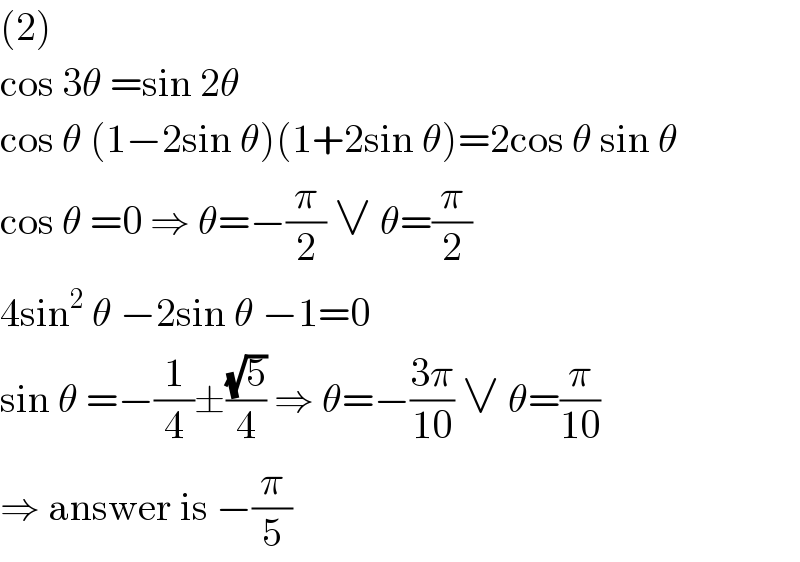
Question and Answers Forum
Question Number 58406 by rahul 19 last updated on 22/Apr/19
![1)Value of 20!+((21!)/(1!))+((22!)/(2!))+....+((60!)/(40!)) is ? 2) Sum of all solutions of eq^n : cos 3θ=sin 2θ in interval [−(π/2),(π/2)] is ?](Q58406.png)
Answered by MJS last updated on 23/Apr/19

Commented by rahul 19 last updated on 23/Apr/19

Commented by MJS last updated on 23/Apr/19

Commented by rahul 19 last updated on 23/Apr/19

Answered by MJS last updated on 23/Apr/19

Commented by rahul 19 last updated on 23/Apr/19

